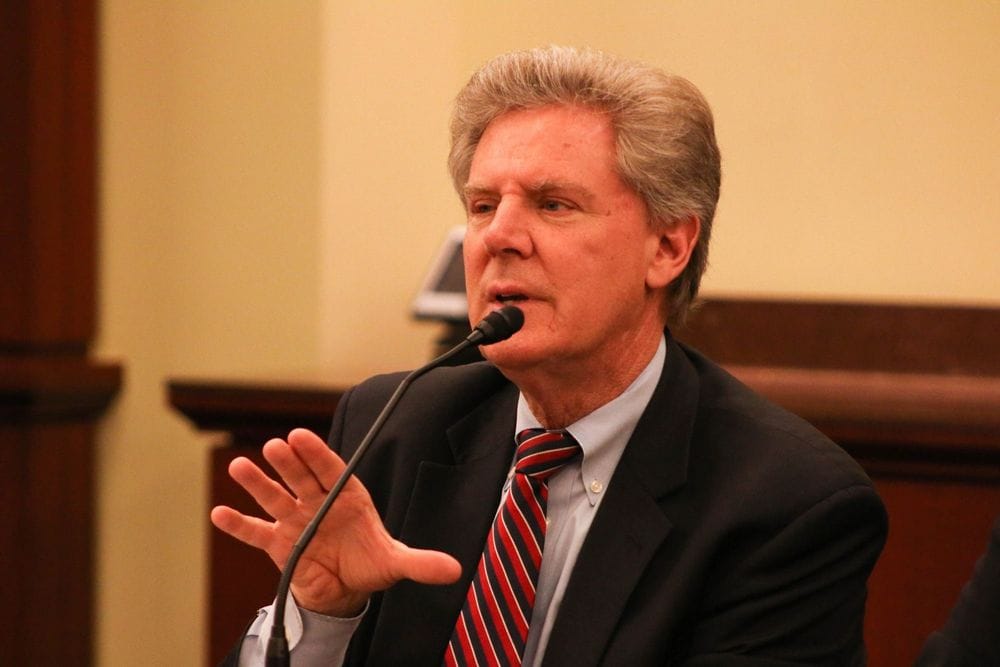House Democrats Tell FCC and FTC to Stop Work, Ookla Criticizes M-Lab, Tribal Spectrum Applications Approved
Leaders of the House Energy and Commerce committee on Tuesday demanded that Federal Communications Commission Chairman Ajit Pai and Federal Trade Commission Chairman Joseph Simons cease work on any “partisan or controversial items” currently under consideration, in light of the results of last week’

Leaders of the House Energy and Commerce committee on Tuesday demanded that Federal Communications Commission Chairman Ajit Pai and Federal Trade Commission Chairman Joseph Simons cease work on any “partisan or controversial items” currently under consideration, in light of the results of last week’s presidential election.
“With the results of the 2020 presidential election now apparent, leadership of the FCC will undoubtedly be changing,” Chairman Frank Pallone, Jr., D-New Jersey, wrote in a letter with Communications and Technology Subcommittee Chairman Mike Doyle, D-Pennsylvania.
“As a traditional part of the transfer of power — and as part of our oversight responsibilities — we strongly urge the agency to only pursue consensus and administrative matters that are non-partisan for the remainder of your tenure,” the letter continued.
“We note that you have previously welcomed calls from congressional leaders for the FCC to ‘halt further action on controversial items during the transition period.’ We hope you will respect this time-honored tradition now,” the letter stated.
In response to Tuesday mornings events, FCC Commissioner Geoffrey Starks issued a statement, saying it is a long-standing Commission practice that, upon a presidential transition, the agency suspends its consideration of any partisan items, until the transition period is complete. “Our congressional leaders have called for Chairman Pai to respect this precedent, and I expect that he will abide by their request, said Starks.
Ookla white paper calls for government to consider new broadband mapping data sources
Ookla, the company behind Speedtest, on Tuesday issued a report highly critical of data from Measurement Lab that it called “misleading.”
In particular, Ookla said that upstate New York’s congressional district 22 received an incomplete picture of broadband performance, leading to a negative impact on government broadband spending.
The 32-page white paper compares M-Lab’s NY-22 broadband mapping data side-by-side with Ookla’s data. Ookla says that it reveals that M-Lab vastly under-reported the network throughput in every ZIP code represented in a congressional report.
By relying on numbers that inaccurately indicate lower speeds than reality, Ookla said, the congressman’s office runs the danger of targeting certain areas for funding that already have adequate broadband service.
As more federal money than ever may be pumped into broadband infrastructure in the coming weeks and months as a result of possible stimulus legislation in the lame duck Congress, or under President-elect Joe Biden, expect to see a renewed focus on the importance of better broadband data for making decision-making about broadband funds.
FCC rural tribal spectrum license applicants pass their first test
The FCC’s Wireless Telecommunications Bureau said Tuesday that a second group of 57 spectrum license applications received as part of the Rural Tribal Priority Window passed initial review and were accepted for filing.
These applicants are one step closer to obtaining access to mid-band radio-frequency spectrum, which is likely to help address connectivity needs in their rural communities and address one of the most egregious digital divides – regarding tribal broadband – in the country today.
“This unique opportunity to secure mid-band spectrum for broadband and other services should have a great impact in closing the digital divide in rural Tribal communities,” said FCC Chairman Ajit Pai. “We have now granted over 150 licenses and will continue to grant applications as appropriate to ensure that as many qualified entities as possible can begin providing wireless services.”
“Connecting tribal communities to online resources for health care, education, business, and life in general is a priority for us, and I’m pleased that our 2.5 GigaHertz band spectrum initiative is so directly and substantially addressing that need,” said Pai.










